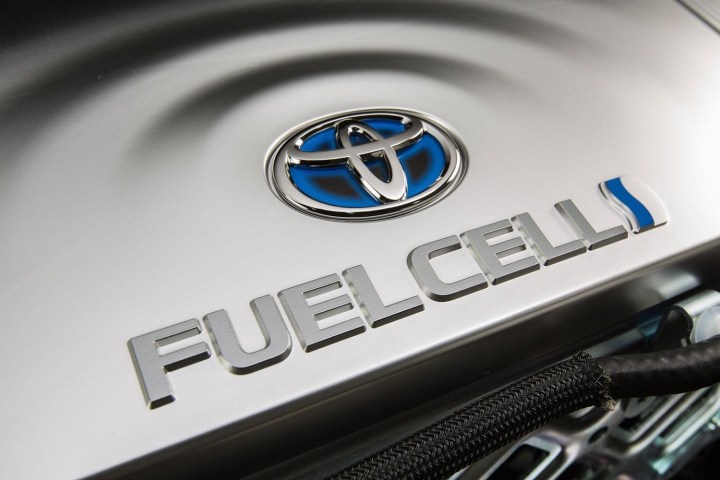
Toyota is now exploring the possibility of using fuel cells to power big commercial trucks. It will conduct a feasibility study in California for a hydrogen semi-trailer truck. California is the only U.S. state where the Mirai is currently sold, because other states do not have adequate fueling infrastructure.
Commercial trucks rack up more mileage in a year than the average car, and have much worse fuel economy. But the limited range afforded by batteries has made them a tough nut to crack when it comes to electrification. The longer average ranges and short fueling stops afforded by fuel cells may prove attractive to truckers. Toyota did not say when the study would start, only noting that additional details will be released “in the coming months.”
While it studies fuel-cell big rigs, Toyota will also begin manufacturing fuel-cell buses in Japan. It will supply two of the buses to the Tokyo Metropolitan Government for transit service, and hopes to have a fleet of 100 ready in time for the 2020 Tokyo Olympics, where the Japanese government plans to showcase fuel-cell technology.
The move toward fuel-cell commercial vehicles comes just as Toyota begins to change its strategy and warm towards battery-electric cars. While the automaker previously viewed fuel cells as its zero-emission technology of choice, Toyota now reportedly plans to launch a mass-market electric car in time for the 2020 Olympics. Details on that model are scarce, although it may turn out to be an SUV.
Toyota is forming a small, in-house group to develop the electric car. It hopes to have the group completely assembled by December, giving it around three years to complete work on the car. That’s a fairly tight schedule by industry standards, and the fact that Toyota is only now forming an electric-car development group indicates the company hasn’t been thinking about an electric car for very long.


